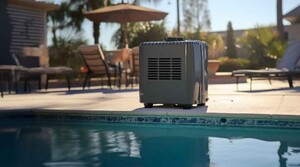More from Rowlen Boiler Services
More in Politics
Related Blogs
Archives
Social Share
Common Problems with Swimming Pool Boilers and How to Fix Them
Body
A swimming pool boiler is essential for maintaining the ideal water temperature, ensuring that your swimming experience is enjoyable year-round. However, just like any other appliance, these boilers can encounter various issues. Knowing what common problems may arise and how to address them can save you time, money, and frustration. In this article, we’ll explore frequent issues with swimming pool boilers, including their symptoms, causes, and solutions. Whether you're a pool owner looking to troubleshoot or seeking preventative measures, this guide offers valuable insights that can keep your pool's heating system running smoothly.
Understanding Your Swimming Pool Boiler
Swimming pool boilers operate by heating water that circulates through the pool. They use gas or electricity to generate heat, maintaining a comfortable swimming temperature. When these boilers malfunction, it can lead to discomfort, increased energy bills, or even costly repairs. Below are some of the most common problems pool owners may encounter, along with practical solutions to keep your boiler in top condition.
1. Boiler Not Heating Water
One of the most common issues pool owners face is a boiler that fails to heat water. If you find your pool is colder than usual, several factors could be at play.
-
Thermostat Issues: The thermostat controls the water temperature. If it malfunctions, it may not signal the boiler to heat the water properly. Check the thermostat settings to ensure they are correct. If the thermostat is faulty, consider replacing it.
-
Gas Supply Problems: For gas-powered boilers, ensure that the gas supply is on and that there are no leaks in the gas line. A professional can check the line and make necessary repairs.
-
Electrical Problems: Electric boilers can experience issues with circuit breakers or fuses. Check these components for any signs of damage. If you find a blown fuse or tripped breaker, replace it. If the problem persists, consult an electrician.
2. Unusual Noises
If your swimming pool boiler starts making strange noises, it may indicate underlying issues that need attention.
-
Kettling: This occurs when the water in the boiler overheats and forms steam bubbles, leading to a rumbling sound. Kettling often results from limescale buildup, which restricts water flow. Flushing the system or using a descaling solution can help resolve this issue.
-
Popping Sounds: If you hear popping or banging noises, it could indicate air trapped in the system. Bleeding the radiators or checking for airlocks can resolve this problem.
3. Frequent Cycling
Another issue pool owners may notice is that their boiler frequently turns on and off. This cycling can lead to increased energy consumption and reduced lifespan of the unit.
-
Incorrect Thermostat Settings: Ensure your thermostat is set to the desired temperature and is functioning correctly. If it’s placed in an area with fluctuating temperatures, consider relocating it to a more stable environment.
-
Insulation Problems: Poor insulation around the pool or boiler can cause heat loss, prompting the boiler to work harder to maintain temperature. Inspect insulation and replace or repair any damaged areas.
4. Leaks
Water leaks around your pool boiler can cause significant damage if not addressed quickly.
-
Pipe Connections: Check for leaks at the pipe joints and valves. Tightening or replacing worn-out fittings can often solve this problem.
-
Corrosion: Over time, pipes and the boiler itself can corrode, leading to leaks. If you notice rust or corrosion, it might be time to replace affected components.
5. Error Codes
Modern swimming pool boilers often come with digital displays that show error codes when something goes wrong.
-
Refer to the Manual: Each manufacturer uses different codes, so refer to your boiler’s manual to understand what the code means. This can guide you on the necessary steps to take.
-
Reset the System: Sometimes, simply resetting the boiler can clear error codes. Turn off the power, wait a few minutes, then turn it back on.
6. Inefficient Operation
If you notice your pool heating bills increasing significantly without any apparent reason, your boiler may be working inefficiently.
-
Dirty Filters: Clogged filters can restrict water flow and reduce efficiency. Regularly clean or replace filters to ensure smooth operation.
-
Regular Maintenance: Scheduling regular maintenance can help identify potential issues before they escalate. A professional technician can clean components, check for leaks, and ensure your system operates at peak efficiency.
Preventative Measures
While knowing how to fix common problems is essential, taking steps to prevent issues can save you from hassle in the first place.
-
Regular Inspections: Schedule annual inspections with a qualified technician to ensure everything functions correctly. This can help catch minor problems before they turn into major repairs.
-
Proper Use and Maintenance: Follow the manufacturer’s guidelines for use and maintenance. This includes regularly cleaning the boiler and surrounding areas, checking water levels, and maintaining proper chemical balance in the pool.
-
Winterizing the Boiler: If you live in a climate where the pool is not used in winter, properly winterize your boiler. This involves draining water, insulating pipes, and ensuring that components are protected from freezing temperatures.
Final Thoughts
Understanding common problems with swimming pool boilers and knowing how to address them can significantly enhance your swimming experience. Regular maintenance, quick troubleshooting, and understanding how your boiler works will ensure that it runs efficiently and effectively. When in doubt, consulting a professional can save time and prevent further damage. By taking these proactive steps, you can enjoy a warm, inviting pool all year round, ensuring a relaxing and enjoyable environment for family and friends.










Comments